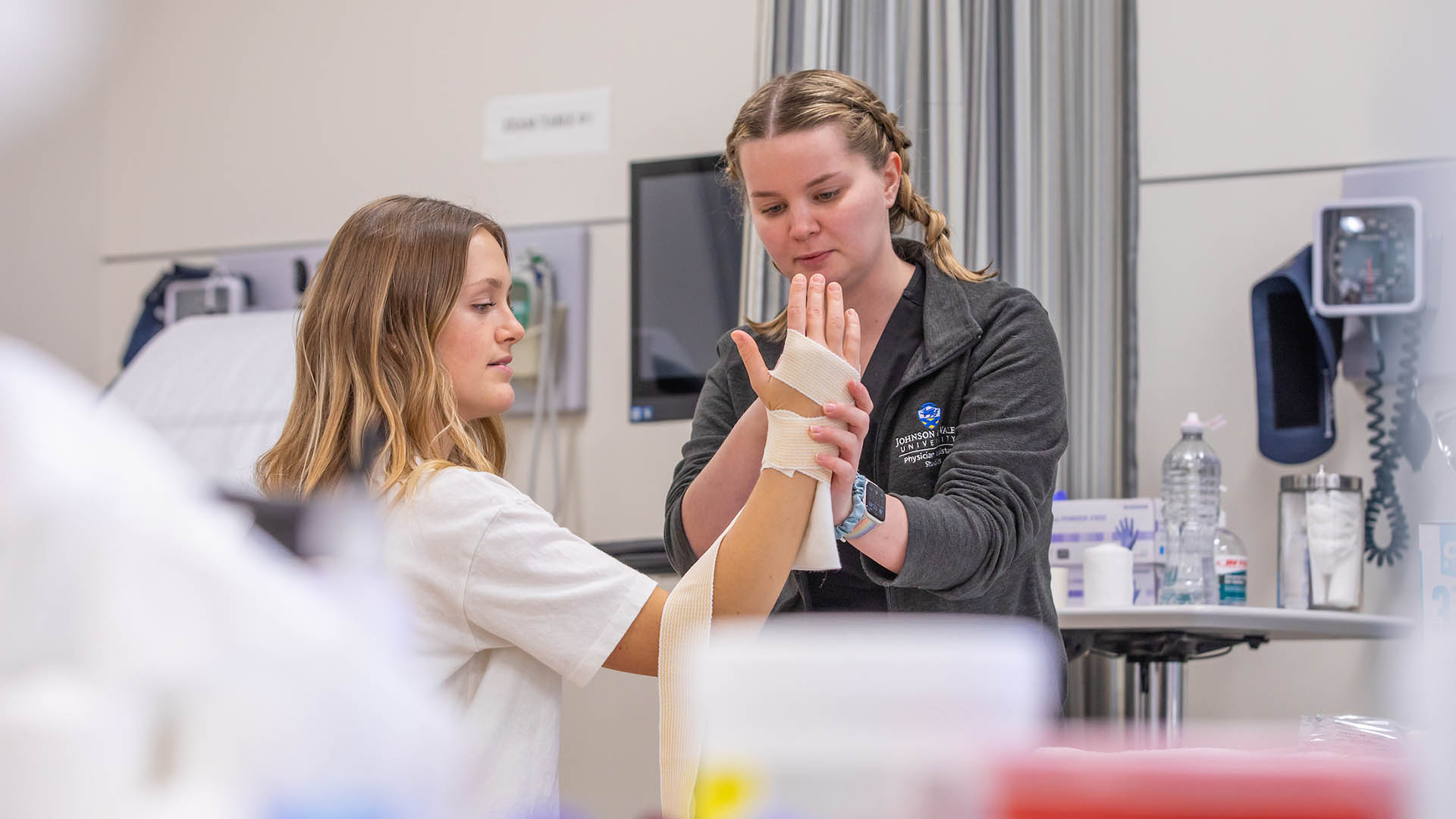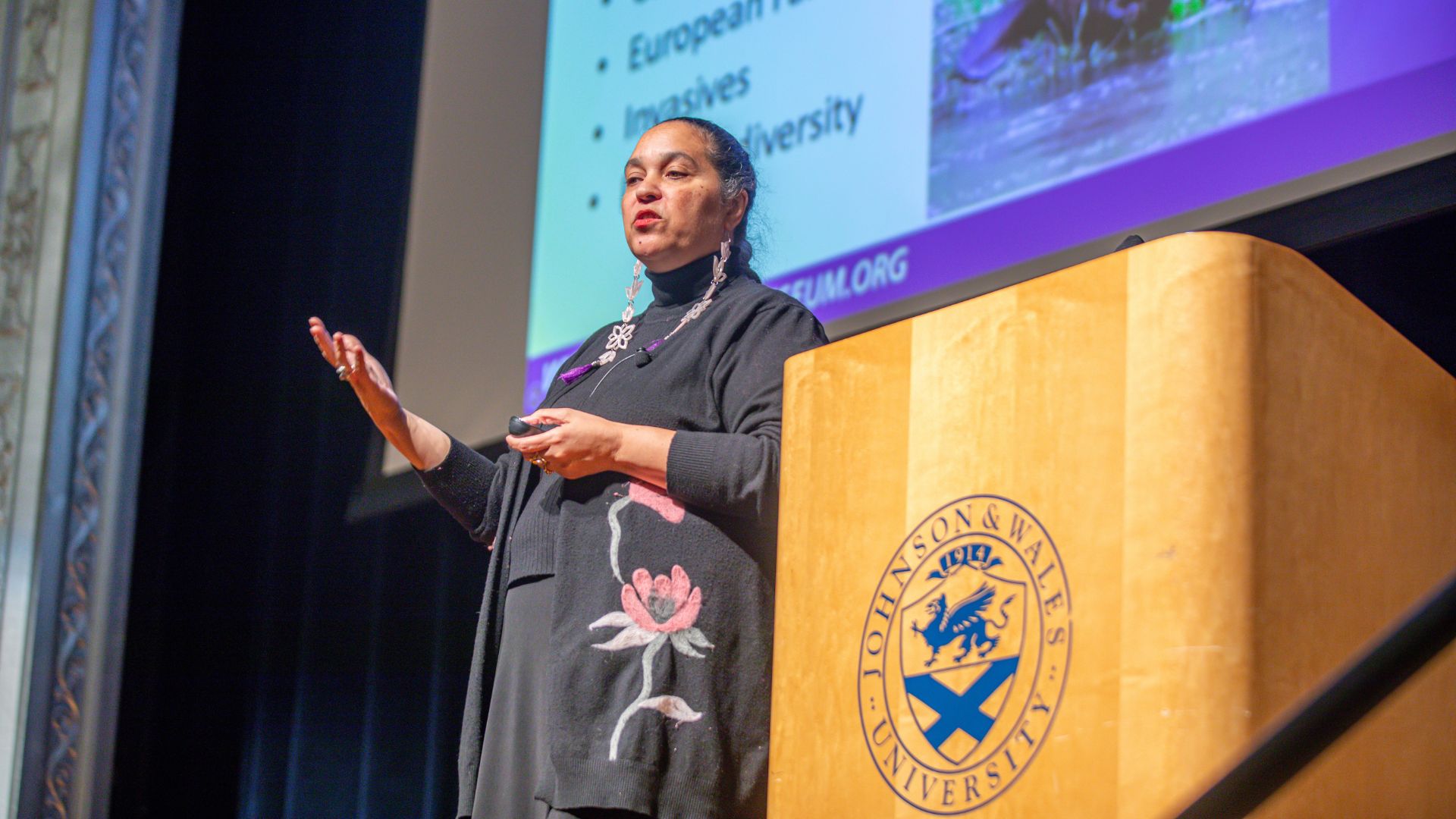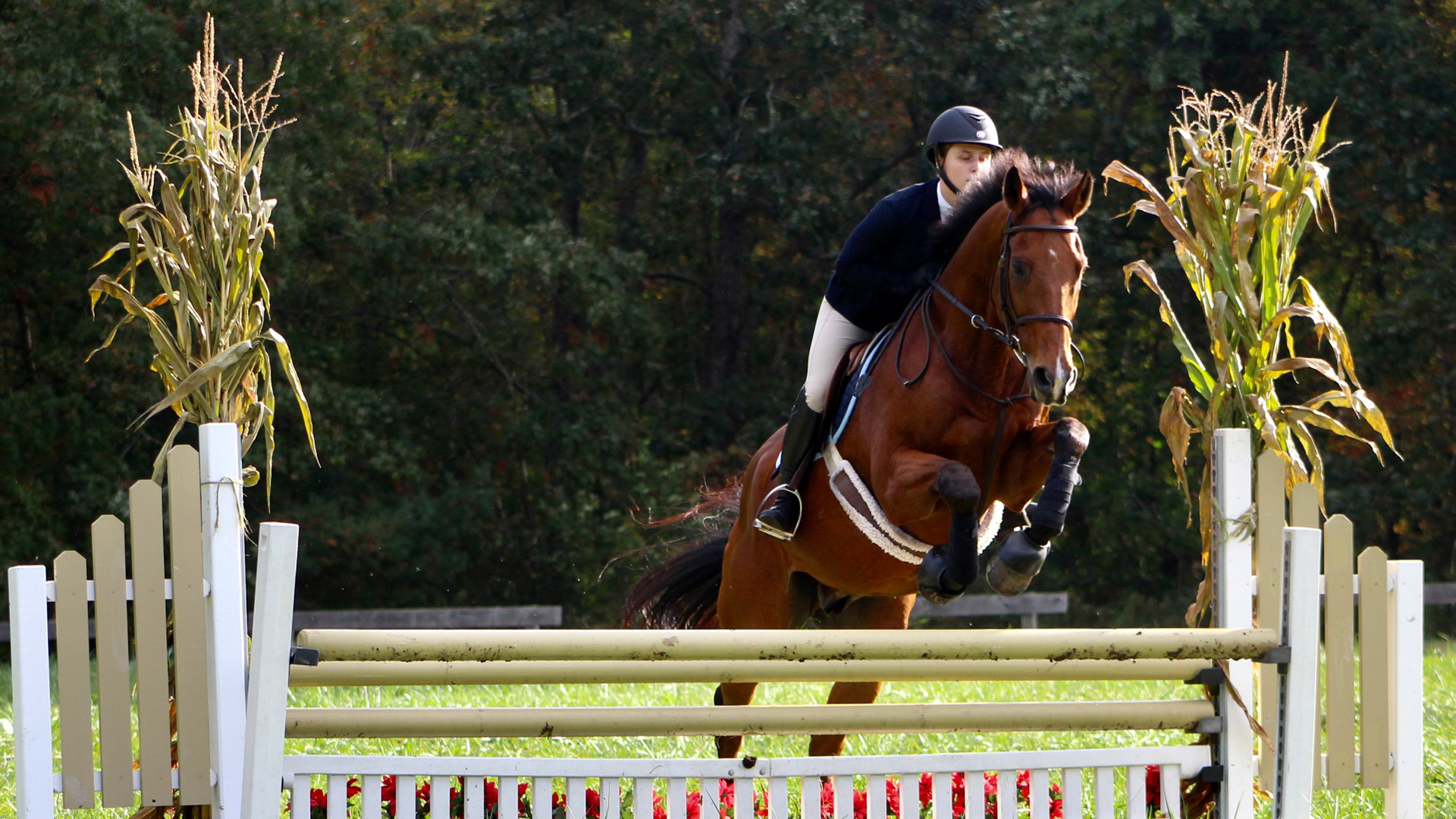HackJWU Team Continues Hackathon Winning Streak
It’s been a busy hackathon season for the HackJWU team. Membership is higher than ever, 40 and counting, making it easy for the group to attend as many virtual events as they can in the US and even as far off as India.
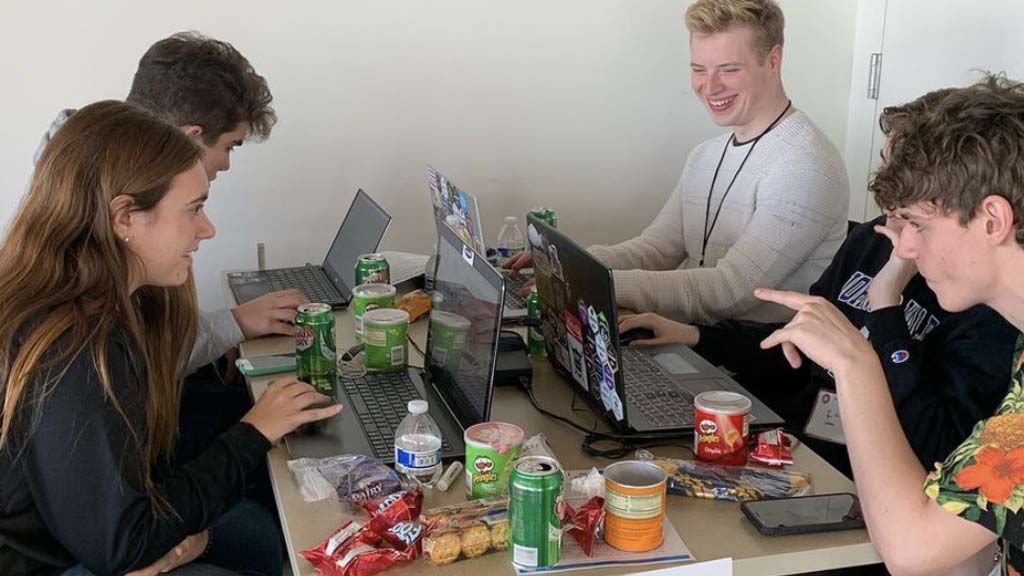
Their ingenious hacks have earned them eight wins, so far, with projects covering everything from programming a bot that can randomly add silly memes to a Discord chat room that’s in a slump, to a health focused hack that can teach deaf children how to read lips, to building a server where friends separated because of Covid-19 restrictions can game together, to a program that crawls the dark web looking at online marketplaces that are illegally selling personal data.
“We’ve had a pretty good ratio this year,” says Andrew Zeoli ’21, a Cybersecurity major. “We’ve been to different hackathons and we’ve had different project wins across all of the hackathons as well.”
He adds that while this year the hackathon scene has been different because of Covid-19, team members are still able to collaborate on the projects and get things done. “It’s certainly different when we are all in person [instead of virtually], we all kind of had a little more camaraderie and tend to work together more. But even though we’re all online, we still get to talk to each other and we can still easily collaborate, because everything we do for the projects is online.”
Pursuing Bigger Learning Opportunities
Taking part in hackathons has become second nature to the team, but each win comes with its own set of challenges and solutions — all of which in turn lead to learning opportunities.
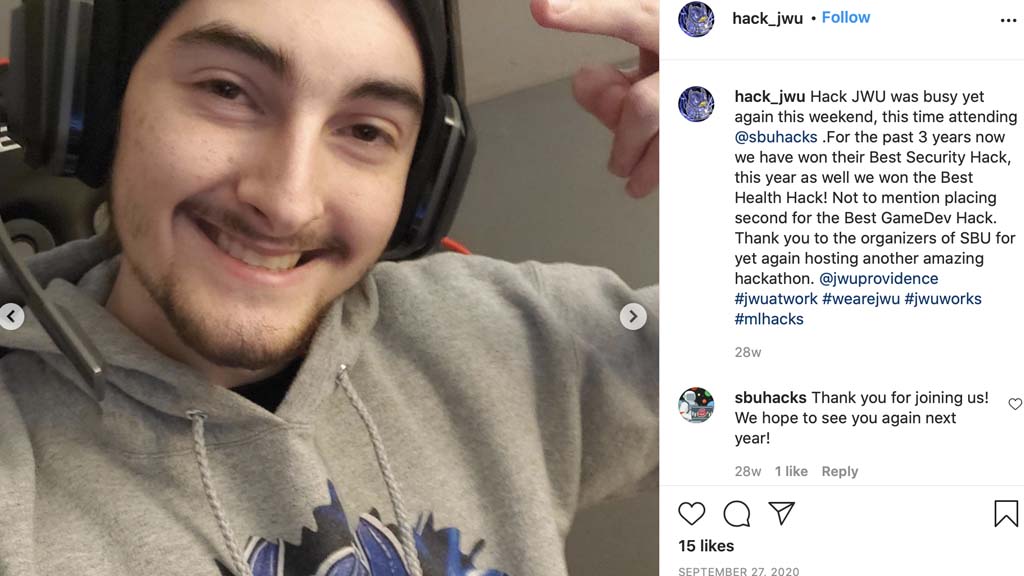
Ian Costa ’21, who’s been a part of the team since it began a few years ago, appreciates the experience each one brings. Most recently, the team won the Top-Tier Undergrad Best in Show award for cybersecurity for their DarkWebSherlock. “[Winning this award] feels pretty great and because we have won other hackathons before it’s not completely unfamiliar to us. But it’s always great to be able to get the word out that our club is doing great things, and to add this experience to our résumés,” says Costa.
And these experiences, according to team members, are what keeps them coming back for more. Most team members are Cybersecurity majors, and they credit the program for setting them on a path of self-discovery to learn more on their own. They add that hackathons give them an opportunity to grow, outside the classroom, in areas they’re most curious about.
“I definitely think being a part of the club has helped me get ahead, because I’ve been on a bunch of hackathons,” says Colin Hamill a first-year student at JWU and new team member. “When I started, I didn’t know much about the tools we’re using so it’s mostly been a learning experience for me.”
Donald Finlayson ’21 Cyber Threat Intelligence & Defense, a senior, agrees adding that the classes he’s taken at JWU have set a solid foundation for him. “[In class] we’ll learn one thing, and then we start looking more into other things. And it’s the same in our club, we learn new things that seem interesting and we share them with the rest of the club. We might pick up tools we can use in the future, depending on the path we take. But overall, it’s more of a big learning experience, because you never know what you’ll see down the line especially in your career path.”
For Zeoli, who’s also looking at graduating in the fall, these experiences provide a way to expand his portfolio. “With Cyber there are so many different career paths and career options that you can take within cyber itself, that you kind of have to branch out as a group, and then also independently, and learn topics that we kind see as more of a fit for us when we go out into the workforce.”
HackJWU Hackathons
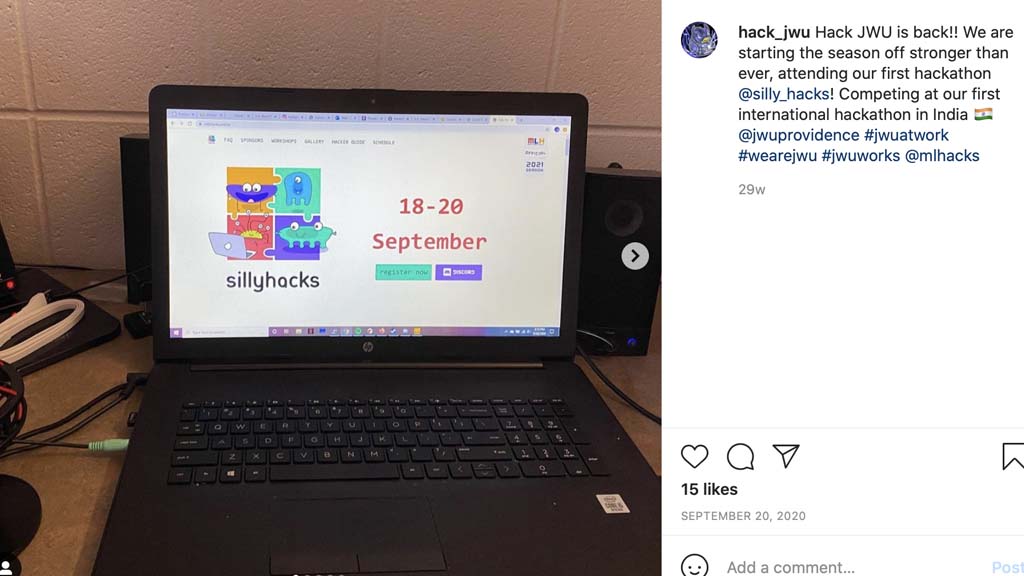
Silly Hacks, Hack for Fun, Online Global Hackathon (India)
Project Name: Poggers Zone
Team Members: Jared Simmons ’22 Cyber Threat Intelligence & Defense, Alistair Wilson ’22 Cyber Threat Intelligence & Defense and Sarah VanDeMark ’21 Cyber Threat Intelligence & Defense
Award: Hacking with n8n
“We started the year off by winning our first ever international hackathon hosted in India,” says Zeoli.
Silly Hacks Hack for Fun, Online Global Hackathon (India)
Project Name: The Earing Aid
Team Member: Brian Thornber ’21 Engineering Design & Configuration Management
Award: Best Jugaad- MLH for coming up with “the most useless, silly, and creative hack.”
SBUHacks, Stony Brook University
Project Name: Lippy the Lip Learner
Team members: Sabrina Storey ’23, Sarah VanDeMark ’21, Brian Thornber ’21
Award: Best Health Hack
SBUHacks, Stony Brook University
Project Name: Sclippy: Secure Clipboard
Team members: Sam Meding ’22, Ian Costa ’21, Matt Virian ’21, Daniel Lacas ’22
Award: Best Security Hack
“This was our third year in a row attending SBUHacks. This year we kept our streak for winning the cyber security challenge they host, and we also won the Best Health Hack making this our first double win of the season,” says Zeoli.
Codestellation 2020, Brandeis University, BITMAP
Project Name: C.A.B.S. (Corona Anti Boredom Server)
Team Members: Daniel Lacas ’22, Jared Simmons ’22, Alistair Wilson ’22
Award: Best Social Impact
“This is the hackathon where we bring nearly all of our first-year students to, and we ended up winning,” says Zeoli.
Hack@CEWIT 2021: Innovating Through the Pandemic, Stony Brook University
Project Name: PC Optimizer Pro
Team members: Daniel Lacas ’22, Alistair Wilson ’22, Jordan Limor ’24
Award: Best Home Office Hack
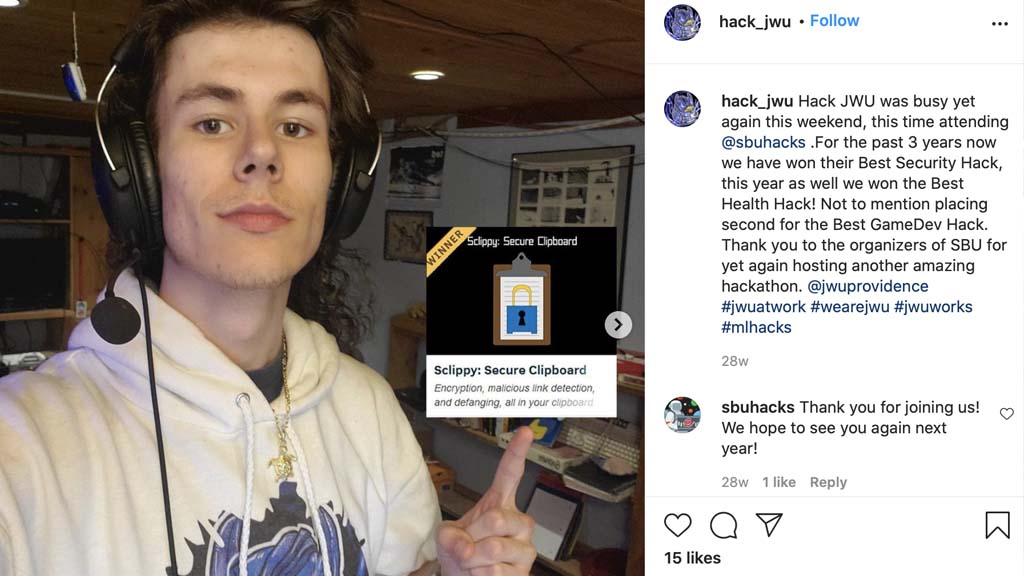
Hack@CEWIT 2021: Innovating Through the Pandemic, Stony Brook University
Project Name: DarkWebSherlock
Team members: Andrew Zeoli ’21, Colin Hamill ’24, Donald Finlayson ’21, Ian Costa ’21
Award: Top-Tier Undergrad Best in Show award in cyber security
Sunhacks MLH
Project Name: The Social Distancer
Team Member: Brian Thornber ’21
Award: Best Hardware Hack
The HackJWU team is looking forward to attending a few more virtual events to close out their hackathon season this year. Follow them on Instagram @Hack_JWU to keep up with their hacks.

